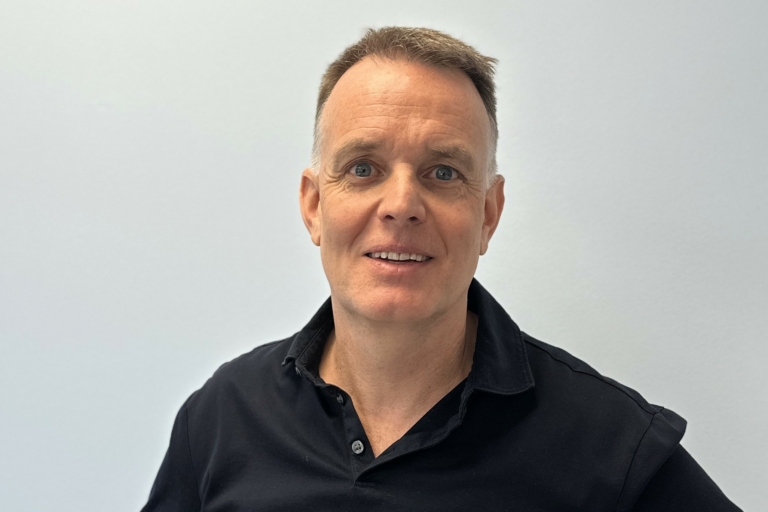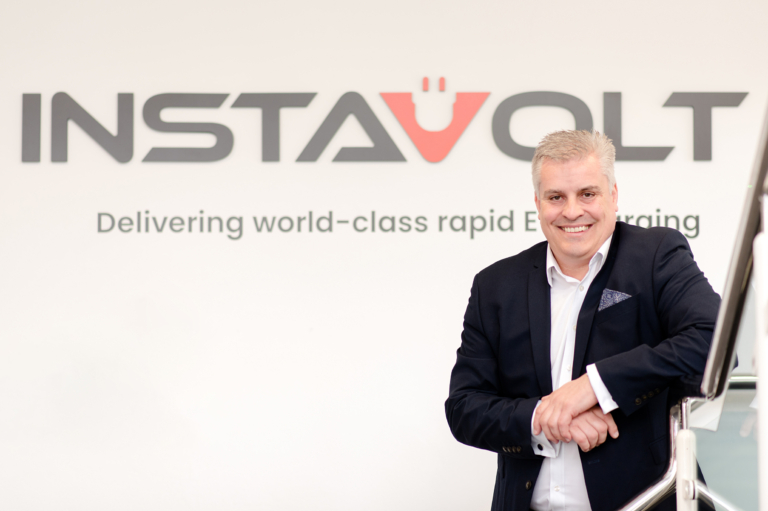Roundtable: Managing entrepreneurial growth pains


Hosted by EY, UBS, Osborne Clarke and The Business Magazine, this Roundtable held at The Royal Berkshire Conference Centre, Reading involved entrepreneurs at different stages of growth in their respective businesses.
So, at what stage of growth is your business?
Claire Edmunds said Clarify had been through several growth stages but 12 months ago began to plateau. “The business was performing quite well, running adequately, but we needed to challenge ourselves outside our comfort zone to take the business up a gear. So, we took time out to see what fundamental changes were needed.
“As a relatively small organisation with a simple management structure, we needed experts coming into the business to shake us up a bit. When you’ve worked together for several years, you can become very comfortable in how you operate, and sometimes you need a challenge to your way of thinking.
“We needed to find out what new strategies and ways of growing the business were out there. It’s been an interesting process to go through.
“As an entrepreneur your appetite for risk can vary, but we are back now with a fairly high-risk appetite, challenging the business to start doing different things. That’s quite energising in itself. Our proposition is good, the timing is right with market opportunities occurring, and our focus is now to shift the business up to that higher gear.”
Experiential marketing specialist Sharon Richey brings brands to life in a memorable, meaningful and magical way. Her company, and the marketing channel experiential marketing, have developed steadily over the past 20 years. “We now operate in a very cluttered and competitive marketplace. Whereas we were once one of maybe half a dozen or so experiential agencies, we are now one of 20,000 marketing communications organisations, and one of almost 150 experiential marketing specialists. So our challenge is to now shine brighter and better against our competitors, and to this we need to market our brand more cleverly than ever before.”
John Rees said his company was now in scale-up mode. “We sell through very large global partners and also have a small number of direct clients that require high levels of servicing. Typically we test new markets through our partners and then follow up with a direct sales team if appropriate.”
Business has been grown in different countries by appointing in-country managers and establishing localised teams and networks. “We are now looking at multiple European and global markets and will adopt more of this approach this year.”
Julianne Ponan’s superfoods business began in 2012 and has two advisory NEDs, helping with margin structuring and financial matters. “Last year we doubled turnover but lost out on profit.” By generating additional profit, Ponan’s business is now able to invest more on marketing.
“In new business terms, employing outside consultants has proved costly and not really paid off. In fact, we have gained more business ourselves through apprentices that I trained myself.”
Rich Marsh: “My business is very new and we are on the cusp of looking for external help and talking to investors.” Successful friends had helped informally in “... providing me with the business balance to prevent me doing some of the crazy things I might have done.
“I have probably been carrying on for too long without professional assistance, but now seems the right time to do so. We have got many possible footholds and fingernail clinging opportunities within some international markets but that next step is outside my comfort zone, so expert advice or non-executive director (NED) influence would be good.”
What type of NED do you need?
EY’s Gareth Anderson asked to what extent NEDs looking to work with fast-growing entrepreneurial businesses were also looking for an equity stake (perhaps under the Enterprise Investment Scheme (EIS)) in the business?
“They often are, but I don’t think you have to agree to that,” said Edmunds, who has appointed NEDs in the past with varying success. Her advice was to involve NEDs only for specific short-term purposes, such as market or cultural shift.
“When you are growing very quickly, you need to take what help you want and then move on to the next set of expertise.”
Richey agreed. “We bring in NEDs on a fixed term, as after a period of time people have probably given us as much as they can. It is very important to keep focused on why you are bringing in a NED and agree just one or two very specific objectives.”
However, her company chairman, a NED, has a continuing role to provide governance and impartiality to board debate, a useful appointment where boardroom family relationships may be involved, she added.
NEDs at BEcause Brand Experience are retained on a fixed contract per annum, with bonus potential, are given a job description, objectives with KPIs, and tasked with providing monthly activity reports to the board. “It’s all based on performance not work-hours.”
In 2014 Richey successfully brought in handpicked NEDs to her management board to generate new business. “Business development in our marketplace is like big game hunting where everyone is after the same prize, and the associated costs to win a new client are high. We only work with the top global brands, and one new route to market has been through the non-execs’ networking and relationships.”
Rees said the Redwood Technologies Group does not have NEDs due to its flat management structure, which is geared towards expansion through internal promotion and the integration of experienced third-party resources and consultants, building on its senior executives’ extensive network of contacts. “Our senior management team is highly-experienced in our wider industry, and we look towards experienced consultants or even FTEs to fill any gaps. Also, when you are growing a business, it is important to have very clear areas of operation for which individual managers are responsible on a daily basis.”
Proven serial entrepreneur David Sanger is a NED with three companies. A NED can be “yesterday’s man and today’s consultant” helping young businesses avoid the errors of growth, he explained, or tasked with specific project work. “Would my early businesses have been better if I had brought in someone who had been through the hoops before? The answer has got to be ‘Yes’. I think NEDs can be very useful appointments.”
Sanger the entrepreneur actually gained much help through the Academy for Chief Executives, the UK’s leading executive coaching and mentoring organization. “Monthly meetings were a bit like having 12 NEDs around the table.”
Lawyer Sara Valentine said the value of NEDs depended upon the management board’s attitude to control and the company’s growth stage. “Their introduction can produce interesting dynamics. Where I have seen it work very well is with fast-growing businesses where NEDs bring in new ideas and expertise to help the business reach new markets or clients. It’s not right for every business, but it can work well for some.”
Sanger said NEDs could often ask the questions that mattered; see the problems more clearly than an incumbent but blinkered management.
“It would be wrong to bring in a NED just to have someone older and possibly wiser on the board. I love Sharon’s idea of NEDs being charged with bringing in sales via their contact black-books for a set two-year period. Whatever the size of the company, every business rests or falls on its sales.”
£15,000-£25,000 per annum was about right for a NED, and adopting a commission rate for sales generated would not be out of order. “The NED role is not just a few days per week, you are generally always on tap to advise or assist,” he added.
Does external investment have to mean giving up control?
Putting a NED on the board can be an external investment pre-requisite, Valentine pointed out. “Some companies struggle with this. They want the investment, but don’t want to relinquish control. Actually, the right NED appointment can positively challenge a business and help it grow.”
Enabling NEDs to gain equity through investment helps align their thinking and ensures commitment to the company, and EIS/SEIS investments can also provide attractive tax reliefs for NEDs on exit, Sanger noted.
Edmunds revealed that Clarify allows its executive board to gain Class B shares and EMI scheme involvements, but the company had not required any outside investment. “I have always questioned where I would get most business gain from equity investment, potentially from the investor’s skills and experience, I suppose. But, it’s also quite healthy to maintain a balance by growing within your own financial means.”
However, with the US market being a likely Clarify growth area, Edmunds suggested the company would consider external investment supported by expertise, to help underpin that step-change.
Richey: “Our growth to-date has been purely organic, but it’s been too hard, and it’s getting harder. At our next board meeting I will focus discussion on whether we sell a minority shareholding in the business to form a strategic alliance with a partner who can fuel our sales pipeline and reduce our business development expenditure. Or perhaps who can we look to acquire, to buy growth.
“As an independent, we’re solely responsible for fueling our pipeline which is an exhaustive and costly process, so we may sell a stake in order to get to the next level.”
With a sales pipeline so important, Sanger advised that new business development should be a boardroom agenda priority. “In my estimation something between 5-7% of turnover should be spent on business generation activities.”
Ponan mentioned that her company’s crowd-funding activities to support cashflow and marketing got undermined by adverse online comments. “I nearly threw in the towel. We needed to get a supportive big business contract, so spent the last of our marketing budget at a major show. I told everyone to pitch to visitors as if they were Tesco or Sainsbury’s, and we actually got Tesco.” Contacts in banking also helped her company’s finances through factoring arrangements, enabling the business to step up a level without external investment.
Ponan is looking at external investment now, however, since she wants to break into the US market. She might consider equity investment, but is currently seeking support through non-equity crowdfunding.
Anderson noted that there are many ways of funding a business. Equity investment can be a key enabler for many entrepreneurs where the business is at the stage that it needs a significant capital investment, or indeed where the entrepreneur is at the stage where they need to ‘de-risk’. “But, it is a big, big decision for an entrepreneur, particularly if there is any sense that there could be some loss of control or a change in the way in which business decisions will be made.”
Sanger: “Always know in advance what the investment funding will actually be spent on. It should actively help grow the business.”
The Redwood Technologies Group founders “bootstrapped the business with their own money from day one”, Rees explained. Having become very successful through its organic growth within the fast-growing IT sector, “we get daily ‘knocking on the door’ from potential investors”.
“We have considered growth by the investor route but any successful offer would be accepted on the consideration of additional value they can add, beyond just financial support. For us, growth will be all about gaining talent, experience or acquiring comparative technology.”
With initial experience in building a business through selling IT hardware, and then later through annuity ‘cloud’ services, Redwood now knows its likely core income from the year-start, which makes investment decisions easier and less risky.
NEDs: Do I choose by CV, contacts book, or chemistry?
Marsh: “I started off thinking I would grow the company organically, but I have now realised that I will not live long enough to benefit, so will have to do something else.” Having considered several potential NEDs, he was still not sure if they had innate business skill or just been lucky to grasp an opportunity at the right time. “Who do I go with?”
His concern was that the NED would not be able to replicate their success. His company need was not just money but proven expertise. “I have done the heavy lifting, secured the IP, got a high-margin saleable product range, and now just need help to drive sales and distribution.”
Sanger highlighted the importance of ‘working chemistry’ when appointing an NED. “Even if they have the best black-book of contacts in the world, if it’s someone you are not going to get on with on a regular basis, then just forget them.”
Anderson agreed that ‘chemistry’ was really important, particularly if the entrepreneur is going to open up their business to the ideas of others. “For an entrepreneur these things can be very personal.”
Do I want to go ‘back to the future’?
Anderson had earlier mentioned that external investment could help ‘de-risk’ the entrepreneur – enabling them to protect their and their family’s personal financial position. “Whichever way this is achieved it’s something which all entrepreneurs should consider at the right time”.
Edmunds highlighted the ‘back to the future’ irony of entrepreneurial business growth. “You move from a seat of the pants environment, selling everything you own, taking out loans and so on to keep the business and cashflow going, to a stage where you are comfortable and actually making money. It becomes a growth tipping point, where you ask yourself ‘Do I want to go back into that risk environment again in order to grow bigger?’ Your appetite to ‘go for it’ may well have changed, but using investment to de-risk might introduce the wrong working tensions among key people.
“If you are going to take a business on a journey, you can’t do it from the sidelines. You won’t drive things hard enough, and the business can stall.”
David Murray: “Risk is an integral part of any business.”
Where’s the exit?
Edmunds: “You have to run the business in the moment and be focused on doing the right things for the business. Your personal view of what or when you get out of the business is not relevant and could be a huge distraction. Running a business to grow it, and running one to exit are two very different things.
“I do plan ahead, have taken advice on the shape and structure of the company going forward, but it is really just about good business practice. I don’t run it with an exit in mind.”
Anderson agreed, noting that simply doing ‘all the right things’ to create a well-run business, with a strong management structure, talented people, the right systems and good cash management, would inevitably have the added benefit of readying the business for exit and make it a more attractive prospect to potential buyers.
Richey, also an Academy for Chief Executives member at Cranfield, said ‘Me’ could become very important for an entrepreneur. “Your needs do change during the chapters of your life. We all work better with focus and vision, and one aspect should be ‘What does this business mean for me? How will I realise my return?’
She agreed with Anderson that, when possible, entrepreneurs should take some money out of the business each year to reward their efforts and compound their wealth. “Focus on the ‘now’, but also keep an eye on what ‘next’ looks like and what you’ll need to fund this.”
Ponan began thinking about ‘Me’ in her second business year, when preparing her five-year plan. “It moulded what I was doing with the business and made me consider lots of different strategic approaches, including exit.” Mentored by Richard Reed of Innocent Smoothies, Ponan was advised that running a business blind is not an option, and future scenarios should always be considered and solutions prepared.
Richey suggested companies should aim to make themselves attractive to potential buyers, perhaps by aligning their corporate culture or operational synergies.
Sanger: “Don’t build a business for exit. The right priority is to build your business better and bigger. If you build a good business, it will be valuable and saleable. Keep only a small fraction of an eye on exit and who your buyers might be.”
Having been a business-selling owner and once an NED hired to create a business exit he explained: “It can be a really, really awful process. Mine took nine months and was twice as bad as I thought it would be – maintaining the workload, the secrecy, dealing with corporate finance, lawyers, due diligence, plus you don’t know if the deal will fall over till the very final day.” He advised hiring professionals to externally manage the deal.
Marsh: “I work very much in the moment, and realise the perils of not being business focused.” He warned of distractions such as investors “semi-bullying me to think about exiting” and thoughts during meetings about trading partners or large suppliers who could become potential buyers.
Recruiting the right people through science and chemistry
Edmunds: “Getting good people is probably one of the most difficult things, particularly when hiring valuable experienced people, whose working culture, ‘chemistry’ may be very different to your own.”
Clarify had done significant work on building a recruitment process to attract candidates that suit its company’s operational and cultural requirements, she admitted. “We are designing our organisation based on the skills, behaviours, values, motivations that we want our people to have, using tools such as psychometric profiling and behavioural interviewing.
“You can’t hire perfect people, but you can do a lot by understanding and profiling people you want in your business.” Small companies can’t always promote from within,“ she added.
Richey advised: “Be very clear that you know the DNA of your business and whom you want within it.” She accepted she had her own straight-talking South African way of working and ‘chemistry’ did matter to her when interviewing candidates. She also admitted that she now respected the accuracy of psychometric profiling procedures, and didn’t rely purely on gut instinct as she had when starting out in business.
Rees: “When we recruit, candidates meet a number of people in the business and if there is any uncertainty from anyone then we won’t proceed with the individual. We’ve learnt from experience that a good cultural fit is crucial.” Redwood’s intake tends to combine gifted Russell Group graduates with senior industry talent, often recruited via networking links.
Multiple candidates attending group assessment days also helps. “The talent quickly shines through and you can also see who will fit in best with your culture.”
Aiming to grow a minimum of 30% this year, Redwood has started to recruit in batches to enable group induction and rapid integration throughout the company. Successful candidates are often sent to international offices to experience and share company culture.
Richey says BEcause does the same by placing staff on international secondments which often invigorate smaller offices, while enhancing corporate bonding. She also mentioned recruiting through loyal staff acting as ambassadors for their company, using their own contacts.
Sanger suggested inviting an office junior to give the candidate a post-interview tour of the business, then asking the ‘tour guide’ for feedback on the candidate. He also advised asking candidates to send a follow-up letter inviting the potential recruit to explain their understanding of their proposed company role, why they wanted the position, why they should get it, and to provide something that made them stand out from the crowd. “Recruit a personality not a CV.” And, employ based on a probationary period.
Richey always took potential recruits to lunch. “You can learn so much from someone in a comfortable environment.”
Recruitment: What happens when you get it wrong?
Edmunds: “If it is the wrong person for your business, it is the wrong job for them too.”
“No-one is too important that they can’t be let go,” said Rees. “A lone-wolf within a business creates issues, and unless they are superb at what they do they have to go,” added Richey. “The minute you know someone is not right, say ‘Good-bye’, but in doing so remember to be respectful to the process. In the ‘now’ is where you make the future.”
But that can be a very difficult, emotional and distracting business experience, suggested Ponan.
Outsource the pain by hiring an impartial HR professional to manage their exit with tact and legal correctness, advised Richey. “No-one enjoys having these difficult conversations with people they work with, but even if they are good at their job, they may not be right for the overall business. Releasing their talents to the marketplace can often be best for both parties.”
“If you get the recruitment process right, you won’t get misfits or lone wolves later. Leopards don’t change their spots either. Your first responsibilities are to you and your business.” Sanger summed up.
What keeps you awake at night?
Marsh: “Seeing the tumbleweed blowing through my bank balance because we need to get to the next level …. Oh, and my bad back.”
Edmunds: “It changes from one stage to another. You are always on a quest to ensure you focus on the right things for the business, and not relaxing on one area too much.”
Richey: “How I am going to get the business to a point where I can realise the company succession plan and get a fair return on many years of really hard work?”
Ponan: “Legislation. There are so many things to put in place in the food sector, and they can take weeks and put pressure on me. Also, employee and cashflow issues.”
Rees: “Innovation. Making sure we are successful today, while looking over the hill at what the future might be. It’s not just delivery today, but what will be a relevant technology or business model in tomorrow’s marketplace.”
And to achieve better sleep? “The important thing is to write down each night what you want to achieve next day, so you have a forward plan.”
Sanger suggested incorporating recurring revenue into business plans. “It is important because otherwise you are always trying to re-invent the wheel every Monday. If you know what next month’s and next summer’s sales will be, you can sleep at night.”
Is the UK business environment right for entrepreneurs?
Richey said ‘entrepreneur’ was an overused word to describe businessmen these days. True entrepreneurs create multiple successful businesses, and in fact it’s quite rare for someone who grows and sells a business, to do it again and again. Even so, she accepted that there were far more ‘entrepreneurs’ nowadays and a lot more business support is given to people who want to be an employer vs an employee. “There are fantastic clubs, networking opportunities and support systems now available, but perhaps with so much now out there it’s harder for people to realise exactly what will be best for them. That’s where publications like The Business Magazine have a really important part to play.”
Anderson and Murray agreed about the different avenues of support which were available, and highlighted the rise in popularity of mentoring, upskilling and management training, notably through academia such as the Henley Business School and Cranfield School of Management.
Sanger: “If you want to succeed in business in the UK, you can. It’s an incredibly brilliant business environment. Our legislation is actually relatively light compared to other places like France or Scandinavia, or America where there is huge interference and every state seems to have different laws. The UK is genuinely a brilliant place to do business, since there are very few barriers to entry or starting a business. We now have a business friendly society where ‘entrepreneur’ is no longer a dirty word.”
Toby Johnson of UBS felt global issues such as Chinese economic rebalancing, EU concerns and Middle East unrest were affecting business sentiment and confidence. “The uncertainty puts pause to plans to invest and grow. That can then become self-fulfilling as businesses follow suit, and you can very quickly come to an economic malaise. There are plenty of things this year that have spooked the markets.”
“Do you worry about a Brexit?” asked Murray.
Ponan: “We do because we trade within Europe, and also the exchange rate was in our favour but has dropped off in the past few months.”
“So, your concerns are day to day within your individual market areas, rather than global issues?” queried Murray.
“It’s probably rather short sighted not to think globally these days considering just how connected the world we live in now is,” said Richey, “but I only worry about what I can control. Whatever else happens will happen, and then I’ll deal with it.”
Sanger: “Brexit is a concern for lots of reasons, but I am very confident it will be a stay-in vote, like it was for Scotland.”
Where will your business be in five years?
Edmunds: “Our five-year plan is about game-changing; how our customers use and value business development as a strategy within their organisation. Businesses are in a state of transition all the time and we see business development as a way of driving transformation in a business, and we’ll be doing a lot of thought leadership around that.”
Rees reiterated that Redwood was in a five to seven year scale-up phase, during which it would become a leading global cloud solution, contact and communication provider. “So, five high-growth years, expansion globally, particularly into the US and Asian markets, whilst keeping an eye out for the next big thing.”
Ponan: “Growing our export business in Europe, and working with more markets and major clients. The US is one of our goals but we are not looking at that yet.”
Richey: “We tend to focus on two-three years rather than five because things change so quickly nowadays. To keep ahead of what’s next, one of our partners changed his role last year to become ‘director of the unexpected’, and his sole remit is to now look at live creative technologies that can influence the ideas we put forward to clients.”
Award-winning BEcause Experiential Marketing will also be heavily marketing its new global partnerships product, and will be seeking global expansion through licensing of its IP to form a network of allied partners.
Marsh itemised three objectives: legitimising the acceptability of his sex-related product within its markets; increasing international business footprint; and developing a company team rather than outsourcing so much.
Sanger suggested three to five year plans were unpredictable. A focused one-year plan often suited modern fast-changing businesses better.













